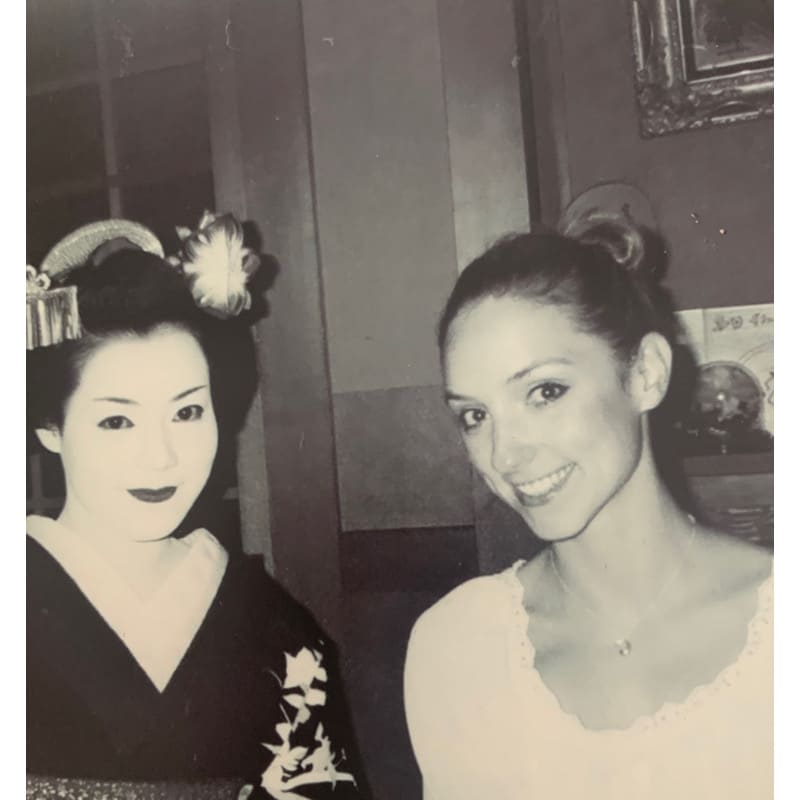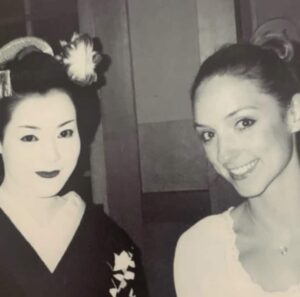
When a friend of mine turned 30, she crafted a beautiful list of life lessons she’d acquired. Some points were cute and moving, some were “do not as I did” words of advice and some were just actually handy life tidbits when it came to etiquette, kindness and general life skills.
Although I wish I could say that I just turned 30, I loved her list so much that I decided to try my hand at my own version – but one from a non-Japanese person who has lived in Japan for more than 12 years. Just a light list of mistakes made and little tidbits that work for me and observations I’ve made ( as you all know, people-watching is and has always been my favourite sport ever.)
Please note that : this is just my experience as a white Australian woman living in Japan. Due to my own cultural background and upbringing my experiences and “life lessons” are, of course, not the same as they may be for others.
Always use an envelope when handing over money
I don’t mean weddings etc, (because there are special envelopes you need to purchase for that) I just mean that you look like you have your life more sorted in Japan when you hand over money in an envelope – even if it’s just paying your child’s teacher for an excursion or paying back your friend for your half of the drinks from the night before. The envelope can be any envelope – nothing fancy. I rarely seal the envelope so it can be reused ( and makes it feel less formal that way.)
Unless it conflicts with a dietary requirement or a religious belief, just try that new food once
Something I’ve noticed in Japan that is different, in my experience, to visitors sampling the local foods in Australia. When inviting you to try something new, Japanese people actually are just curious to know what you think about a new food. I feel like, in Australia, if someone asks a visitor to try something new the only real “winning response” is for that person to suddenly admit that this is the best version of this food or flavour they’ve ever eaten – therefore validating the person who recommended that item.
In Japan, I honestly think Japanese people are interested in watching you try it ( no-one wants to see anyone be rude, of course) but they don’t mind if you explain that it was actually too salty, too sweet, too squishy. Then, if offered more, you can smile and politely shake your heads slowly and say “kekko desu” ( one of the most polite ways to say “no thank you.” And… if you say it with a bit of a giggle it also comes across in a light way in the same way that, in English, you might say ” err.. no. I’m good.” Pronounced similarly to the Japanese female name, Keiko )
That also goes for trying something the way that it’s designed to be eaten in Japan. Why not try it? Just once. Even just to laugh at yourself as you mess it up along the way.
See here for my advice, if you do, in fact, have a serious dietary requirement or allergy and are travelling in Japan.
Not many people in Japan enjoy smelling perfume on others
Especially when it comes to eating out. Part of the experience of dining out in Japan is the sense of smell of the dishes and fresh ingredients. Many sushi restaurants will have signs asking for no perfume at all. I’ve even been told that it can put of interviewers during a job interview too.
If you go to a perfume counter in a department store in Japan you’ll see that it is much smaller than many other countries for this reason too. It’s just not as big of a thing.
Pretty much anything tastes good when it flavours a soft-serve ice-cream
A random flower, a herb, a vegetable that you normally don’t like. Soft-serve ice-cream ( sofuto kureemu) just makes it good.
Being crazy or fall-asleep drunk at a work dinner is not frowned upon. Bringing it up the next day is.
I know this error because I made it. That quiet guy from accounting – who knew he could belt out Mariah at the company party nijikai (after-party)?! And who also knew that he would later fall asleep in the bowl of popcorn but the party would continue with microphones passing over his snoring head? Apparently that’s all cool but I was quickly ushered out by a colleague to be told that, the next day, me going to his desk and asking if he is okay and stating how good he is at dancing… is not. Oops.
Don’t write down anything using red pen / red ink
Red ink refers to debt or financial failure in business ( the term “being in the red” 赤字になるalso applies in Japan). It is also linked to war and blood. Also, in Japan, if you were to build your own grave stone before you pass away, your name is written in red and then changed to black after you pass.
So no scribbling, post-it notes etc or letters in red ink or pencil or pen. It’s bad luck and just not a great thing to do.
*The only acceptation appears to be for corrects or editing. That is pretty much always in red.
Arm-shaving is not for me
When I started my one year high school exchange I tried hard to play it cool (* insert narrator’s voice * although we all know that she was never ‘cool’) when it was time to get dressed for P.E. and two of the girls pulled out little disposable razors and started shaving their forearms ( and, more to the point, it was just dry shaving! No water. No cream. Nothing!) For a split second I wondered if this was just something new as this was my first non-co-educational school so far…but then.. no… this was definitely something new.
Fast-forward a few months ? Peer pressure won ( for the record no one said anything to me but I suddenly felt like hairy-armed Godzilla as the weather got warmer…) and I de-hairified my arms in the shower one day.
I was pretty happy with myself and vowed to maintain my shiny arms forever more! But then a few days later I brushed arms with a girlfriend at the movies – I saw her wince from the prickles… yep my arm prickles… and I decided this was no longer for me.
Almost no-one actually carries home their heavy shopping on the train
If you wonder why you’re the only one with 26 things to carry on the train home – even the little Granny next to you has one tiny little purse. Everyone has their shopping delivered to their house. I’m not just talking Amazon either ( which is incredible -by the way- Amazon Prime in Japan is so fast and reliable and Prime membership is much cheaper than other countries.) No, I mean that if you go to the supermarket in the morning ( most seem to have a rule before 2pm) they will deliver it home to you later. Same for Fruit’n’veggie shops, department stores, Disneyland souvenir purchases… oh and suitcases from one side of Japan to another from a station or a hotel too. It’s life-changing.
Sampling a book in a bookstore isn’t technically allowed… but unless the books are sealed up or there is very clear signage … everyone still does it…
When I was fancy-foot and child-free I would spend literally all afternoon in a bookshop. Customers just stand in front of a shelf page turning and reading pretty much entire books. Doing it with magazines will get you in trouble most. The loophole also seems to be standing. If you sit while opening a book then you must cross some kind of bookstore boundary that takes you into “must pay to consume those sentences” territory.
Those single-sided razors some Japanese salons use -if you have naturally curly hair – are not for you.
The razors I’m referring to look kind of like a butter knife. I’m sure that for thick straight hair they do a fantastic job of thinning out and adding layers or volume ( or whatever they are meant to do. Clearly, my beauty training is shining through my words right now…)
For me?
The result?
Think… Dandelion. Post-disco dandelion.
Never feel (or feel the need to express) overly self-indulgent over taking a long bath
In Japan, baths are not seen as “self-care.” They are part of Japanese life. Take in magazines, set up an iPad for a movie, use all the masks and salts and whatever and do it everyday.
Don’t apply makeup on the train or while waiting for a train
For the record, I think this rule is weird and don’t value this rule too highly. But if you go ahead and apply on the train, do expect to get some funny stares.
It is considered to be bad manners to do so.
Personally, I think, if you have the space, (unlikely but maybe on a long train trip ?) it’s probably a good use of transit time right? Although I don’t trust myself to apply mascara even on flat, steady ground… (Surely there are other bigger issues to address on the trains in Japan?)
I mean, I love seeing how others apply their makeup.. I might get some tips? Who knows?
Even Japanese School Mums admit that they make way more effort on making the daily lunches ( obentos) for their kids on days when other parents will see.
Sports days, school excursions, playdates – yep. That’s when the extra special kawaii foods appear. It’s not every day ( or at least its not that level of kawaii everyday.)
Smile widely and laugh loudly, even when no-one else does
This one is directed at women more than men. I realized many years into my time in Japan that I’d inherited the “covering the mouth” girlie, Japanese hidden giggle.
Thankfully a trip home to Australia ensured that my friend’s quickly picked up on my new habit and quickly slapped it out of me. Like most people anywhere, I’m self-critical human but – my smile is one of my favourite things about myself. So, even in a group of women politely grinning behind their palms at a party in Japan – I’ll be the one laughing loudly, with my mouth open… oh… and, if you’re lucky, a few wines in you’ll probably hear a pig-snort laugh or two.
Dine out ( or do pretty much anything really) on your own and it’s not even a little bit weird in Japan
With the exception of super dooper romantic restaurants its totally not an issue to request a table for one in Japan. In fact, most cafes keep counter seating or certain corner tables just for solo diners. Another joy being female in Japan, is that it is highly unlikely that men around you will see it as an invitation to pull out the old “is this seat taken” song and dance ( rowdy pubs being the exception though.)
You’re never too old to have pencil case
In the land of some of the most dreamy stationery options in the world, I’m delighted to announce that Japanese actual adults have proper grown-up gorgeous pencil cases (pen cases as they are more commonly referred to in Japan, come to think of it) and it’s sometimes as much of an investment as a gorgeous new wallet. For men and women. Life is too short to have a crappy pencil case ( or crappy pens inside, for that matter.) Get to Tokyu Hands, Loft and Muji immediately.
Offering your seats to the elderly is kind but not seen as a must in the same way as in Western cultures.
This can be hard to adjust to but Japanese old people are often nimble, able and extremely capable. I think it is always kind to offer your seat by saying “douzo!” ( here you are!) but, if refused, let it be. You don’t want to offend anyone by bringing attention to the fact that you think they aren’t coping (its different, right?)
The “wow you’ve gained weight!” comments aren’t designed to be as soul-destroying as they initially feel
It’s not just Japan but many cultures don’t see crying out “So nice to see you! You got so much fatter!” as an unusual thing to do. It’s often just seen as a friendly observational comment in the same way that I might catch up with a friend and say ” Look at how long your hair is now!”
I’d still be lying if I didn’t admit that weight comments almost always make me want to turn around and get back on the train for a mini-cry … but I do try and remind myself of this difference and I’ll let you know when I’ve taken it onboard entirely.
Japanese people are way too chilled about car seatbelts in the backseats. This is not something worth acclimatizing too.
And if anyone was to give you a hard time about wearing one? They aren’t being kind that you care about your own safety. Click-click.
Give gifts & return objects in a gift (or good quality brown paper) bag
It’s Japan’s fault that I’m now a paper bag hoarder. After being the only Mum with the birthday child’s present on the table without being in a bag – I’ve learned my lesson. Paper bags for returning a book or even carrying your bento that doesn’t fit in your bag. The bag itself (unless it’s a present ) can be a branded paper bag with a handle from a department store. In fact, many women in corporate settings carry around their lunch bag in a very much treasured Chanel bag from a birthday gift from years and years earlier.
If something is an “event” for school or the office and is held in the evening, always dress like it’s a job interview for a makeup counter job at a department store
If you’ve lived in Japan for a while you’ll know what I mean. Black and white is the safest option. Stockings. Shoes polished. Small and sensible jewellery. Even if you check ahead and you’re reassured its casual dress code. Trust me. White shirt. Black pants or dress. Extra points for shiny accessories. Trust me.
I’ve written in detail about What to wear in Japan here.
Japanese curry doesn’t get more spicy as you go up the numbered curry scale. It just gets more full of spice.
If you go to a curry rice chain you’ll be able to choose your spicy-rating between 1 and 10. My husband and I love spicy food so we went for a 7 and an 8. Turns out – Japanese curry just gets more concentrated and not chilli spicy. Wouldn’t recommend to a friend. Just saying. Normal level spicy for Japanese style curries is too yummy to go messing with.
When travelling with small kids in a taxi, take off their shoes
Their little legs mean their shoes won’t dangle over the edge and most of the taxis in Japan are looked after incredibly well by their drivers ( I mean, have you not seen the mini washing line of cloths drying just to keep the taxis at in their most gorgeous state for passengers? It’s just the kinder thing to do.
Keep speaking Japanese. Even when the response is English.
Japanese people are so kind that it actually ( especially in a major city) can sometimes be more of an effort to speak Japanese. Also, some people, even though they understood what you said see that you’re not from Japan and so their answer will spill out in English regardless. Don’t give up. It’s worth it. A whole new world of Japan and Japanese culture ( as its so intertwined with the language) will open up to you. Even better! Get a language exchange friend. I wrote a whole article on all of my conversational Japanese tips here.
Knowing you’ve made a little cultural mistake ( like wearing the toilet slippers back into the meeting or saying something at the wrong time) feels like you’re the only kid who doesn’t know the answer to the question. On days you can manage? Exaggerate the oops – oh no! to almost a comical level. The fake horror is often seen as more endearing and everyone ( including you) can have a giggle.
On days you can’t? Just get through the day and call a non-Japanese friend later. Vent it all out. Talk about how that rule is “stupid” and how it couldn’t possibly have been avoided. Shake it off and move on when you can. I wrote a whole blog post about my experience with culture shock, if that helps.





